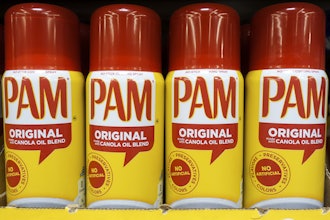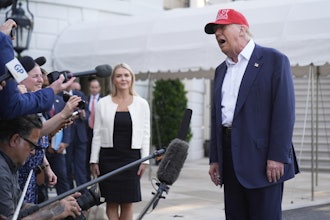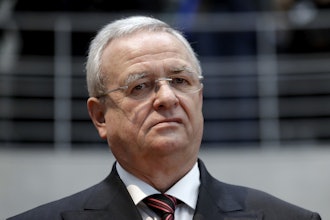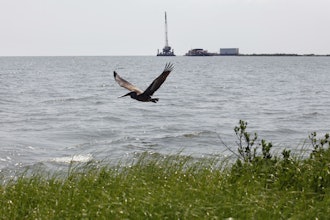MUMBAI, India (AP) — The U.S. says it is not pressuring India to drop claims against an American corporation linked to the 1984 Bhopal gas tragedy, trying to cool a furore over leaked emails that suggest high-level heavying in advance of President Barack Obama's November India trip.
The outcry over the e-mail exchange between a U.S. official and top Indian bureaucrat reflects growing doubts among many Indians — both in the government and outside it — about the human and environmental costs of India's rapid economic growth, analysts say.
The pushback against big business has forced the government to strengthen safeguards in a bill to limit liability for nuclear companies in India — a crucial prerequisite for U.S. companies like GE seeking to build nuclear power plants here. It has also galvanized the Ministry of Environment, which is trying to quash billions of dollars worth of projects by South Korea's Posco Steel, U.K.-listed Vedanta Resources, and Jindal Power — a powerful Indian conglomerate — on environmental grounds.
On Wednesday, TV channel Times Now broadcast a July e-mail exchange between Montek Singh Ahluwalia, a top bureaucrat, and Mike Froman, U.S. Deputy National Security Adviser.
Ahluwalia asked Froman for U.S. help in relaxing India's borrowing limit at the World Bank.
According to the document published by Times Now, Froman pledged to look into the matter and wrote back: "We are hearing a lot of noise about the Dow Chemical issue. I trust that you are monitoring it carefully. I am not familiar with all the details, but I think we want to avoid developments which put a chilling effect on our investment relationship."
In a statement late Thursday, Froman denied that he was trying to pressure India to drop renewed claims against Dow Chemical, which took over Union Carbide in 2001 — 17 years after a deadly gas leak from a Union Carbide pesticide plant in the Indian city of Bhopal that has killed about 15,000 people and sickened some 500,000.
"I was not making any link between what are two separate and distinct issues nor issuing a 'threat' of any sort — any assertion to the contrary is absolutely wrong, both in intent and in fact," he wrote. "I am dismayed to think that anything I wrote could be interpreted as minimizing the toll of the Bhopal disaster. The human suffering as a result of Bhopal is a terrible tragedy."
For critics, Bhopal symbolizes everything that can go wrong in a country where a shadowy nexus of corporate and political power can trump the rule of law. The tragedy has become a rallying cry for those who worry thatindustrialization is proceeding too quickly, with too few safeguards and too little benefit for the hundreds of millions of Indians who toil in dire poverty.
Public ire resurfaced in June after a court convicted seven former Union Carbibe employees of "death by negligence." They were sentenced to two years in prison and fined — a verdict widely seen as far too light.
Many here contrast the oil spill in the Gulf of Mexico, which BP is reportedly spending over $6 billion to clean up, with Union Carbide's $470 million settlement payment and say India is getting a raw deal. They accuse the U.S. of maintaining one standard of accountability on its own soil and another, looser one abroad.
In response to the public outcry, the Indian government said it would renew efforts to extradite Warren Anderson, the former head of Union Carbide and pursue liability claims against Dow Chemical.
Midland, Michigan-based Dow says it has no liability because it did not own Union Carbide at the time of the leak and that Union Carbide's settlement payment resolved the legal case.
"Bhopal symbolizes betrayal by your own government, exploitation by a multinational corporation linked to a great power, and a complete callous follow-up by everyone," said political analyst Amitabh Mattoo. "The e-mail exchange wasn't particularly explosive, but coming as it does at this time, it acquires more potency."
Mattoo says the drive to contain corporate excesses is fueled by a recognition that India's worsening inequality may not be sustainable, coupled with environmental awareness and a historical antipathy toward big business.
"There is a degree of introspection about where is India going and is this the right path?" he said.
Opposition political parties forced the government to write in stronger safeguards to a bill that limits nuclear liability for companies in India. The cabinet on Friday approved a version of the bill that tripled an operator's liability, to 15 billion rupees ($321 million). It must now be approved by Parliament.
An increasingly active Ministry of Environment, led by Environment Minister Jairam Ramesh, has also been taking big business to task.
A committee appointed by the ministry on Monday said U.K.-listed mining giant Vedanta should not be allowed to mine for bauxite in the eastern state of Orissa because it would "threaten the survival" of thousands of tribal people, and said the company had illegally occupied forest land, showing "total contempt for the law."
This month, the ministry ordered a halt to all work, including land acquisition, on Posco's planned $12 billion steel plant in Orissa because the government failed to take into account the rights of tribal people.
It also ordered Chhattisgarh, an eastern state rich with coal and iron ore, to stop Jindal Power — a politically powerful conglomerate — from constructing a power plant more than twice the size it had been granted environmental approval for.
"Jairam Ramesh reflects this new Indian consciousness, and he has the support of key members within the Congress Party," Mattoo said. "We'll see how far he can take this crusade."






















